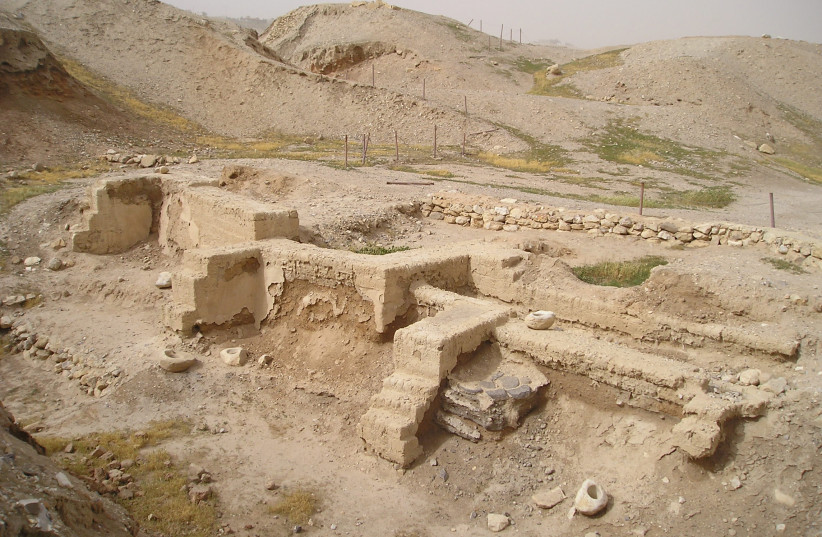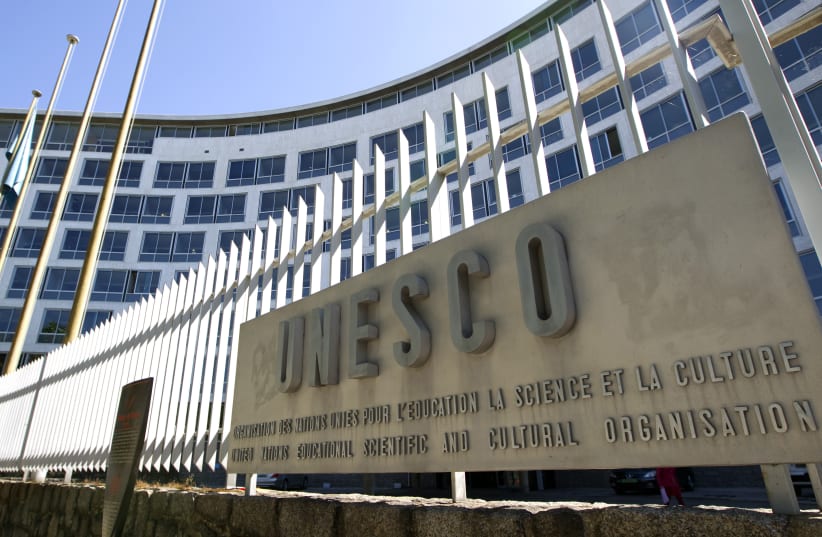“Joshua fought the battle of Jericho and the walls came tumbling down,” goes the famous song recalling the biblical story. Now, the walls might be going up again – if not for the ancient Israelites, at least for today’s Israelis.
And while the people of Israel blew shofarot (rams’ horns), today’s Palestinians are tooting their own horns when it comes to the ancient city and other historical sites in the cradle of Jewish civilization.
As the Post’s Tovah Lazaroff wrote yesterday, UNESCO’s World Heritage Committee is expected to name the site of ancient Jericho as belonging to the “State of Palestine.” The site today is an archaeological park located in the modern city that still bears the biblical name. Jericho is one of 53 natural and cultural sites the World Heritage Committee will be voting on when it convenes this September in Saudi Arabia.
In its application to UNESCO, the Palestinian Authority (PA) wrote: “The long and diverse history of Jericho narrates the undisputed story of 10,000 years of human civilization. It witnessed some of the most significant cultural milestones of human history, is one of the oldest towns on Earth, and is unparalleled in all human history. Jericho is a unique example of well-documented settlements of different development stages of human civilization.”
Note what part of Jericho’s history and “undisputed story” is missing: the part that connects it to the Jews, thousands of years ago.


Erasing the Jewish history of Israel
UNESCO recognized the “State of Palestine” in 2011 and the United States and Israel both stopped paying annual dues to the body. In 2019, both countries withdrew from the organization to protest its ongoing anti-Israel bias. Last month, the US rejoined despite a law prohibiting Washington from funding institutions that recognize states that don’t meet international standards of statehood, which includes the “State of Palestine.”
The UN’s bias against Israel is built-in. The Palestinians do not need to win a case based on merits and facts; they have support from an automatic majority.
Three other sites in Judea and Samaria (the West Bank) are listed by UNESCO as being in the “State of Palestine”: the Church of the Nativity in Bethlehem; the ancient terraces of Battir (Beitar), where Bar Kochba made his last stand against the Romans in 135 BCE; and Hebron’s Old City, including the Tomb of the Patriarchs. That’s right: The land which, according to the Bible, Abraham purchased as a burial plot is now, according to UNESCO, “Occupied Palestinian Territory” at best.
In addition, the Old City of Jerusalem is listed as an “endangered historical site” registered to Jordan and UNESCO routinely refers to the Temple Mount and the Western Wall – the holiest site in Judaism and the portion of its retaining wall that is revered by Jews around the world – by their Islamic names: al-Haram al-Sharif and al-Buraq.
The PA has filed requests for UNESCO’s World Heritage Committee to recognize another 13 sites in the future. These include Sebastia, the capital of ancient northern Israel, built by the Israelite King Omri in 879 BCE. But don’t expect to find a reference to ancient Israel or the Jewish people. The UNESCO World Heritage Convention site describes it thus: “Sebaste, identified with ancient Samaria, is the capital of the northern kingdom during the Iron Age II in Palestine and a major urban centre during the Hellenistic and Roman periods.”
The Palestinians are also attempting to claim the Qumran caves in the Judean Desert, where the Dead Sea Scrolls – ancient Jewish religious manuscripts of unparalleled significance – were discovered in 1946.
The trend is obvious: Jewish (and Christian) links to the land are being erased with the imprimatur of a UN body. So much for cultural preservation.
Joshua’s battle over Jericho is ancient history but there is an important battle to fight today – combating the replacement of Jewish history by the Palestinian narrative in UNESCO and elsewhere in the international arena.
US Secretary of State Antony Blinken had justified his country’s reentry to UNESCO by arguing that it will enable the US to more effectively combat anti-Israel bias in the organization. That assertion will now be tested. Will the US and Israel’s other allies push back against Palestinian efforts to erase the Jewish people’s ties to its homeland?
